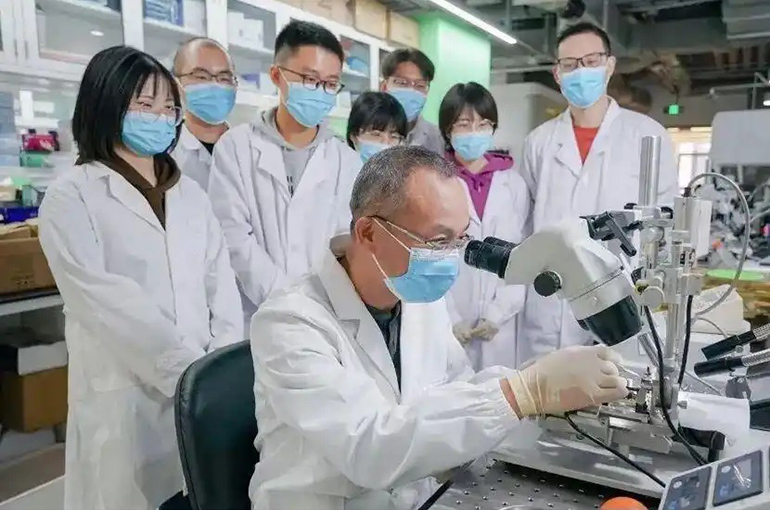 Chinese Scientists Identify Adenosine as Key Pathway for Ketamine, ECT Antidepressant Effects
Chinese Scientists Identify Adenosine as Key Pathway for Ketamine, ECT Antidepressant Effects(Yicai) Nov. 6 -- A team of Chinese scientists has uncovered that both ketamine and electroconvulsive therapies, two mainstream anti-depression treatments, are based on the same neurobiological mechanism.
The Chinese scientists, led by Luo Minmin, director of the Chinese Institute for Brain Research in Beijing, found in mouse experiments that ketamine and ECT therapies both cause a sharp increase of adenosine in the brain’s key regions for emotion regulation, thus discovering a core pathway of antidepressant effects, according to an article published on Nature yesterday.
“Our findings establish adenosine as a pivotal mediator of rapid-acting antidepressants and a tractable target for scalable, noninvasive therapeutics in major depressive disorder,” the article noted. “Capitalizing on this mechanism, we engineered adenosine-enhancing ketamine derivatives that retained efficacy while attenuating psychotomimetic side effects.
“We also demonstrated that acute intermittent hypoxia -- a noninvasive strategy -- recapitulates antidepressant actions through adenosine signaling,” the article continued. “This unified adenosine-centric framework positions adenosine signaling as a tractable target for mechanism-driven antidepressant development.”
Adenosine is widely present in human cells and is involved in key physiological processes, such as energy metabolism, signal transmission, and cardiovascular regulation.
Depression is a major mental disorder. The lifetime prevalence of depressive disorders among adults in China is 6.8 percent, and that of depression is 3.4 percent, according to a study published in The Lancet Psychiatry in 2021.
Patients with treatment-resistant depression account for about one-third of all depression patients. Ketamine and ECT therapies are the main methods for rapidly treating patients with treatment-resistant depression. However, the former has strong potential for drug addiction, and the latter can cause serious side effects, such as memory loss, forgetfulness, and cognitive impairment.
Finding more direct treatments for depression is the key to addressing the side effects.
The Chinese research team has successfully designed and synthesized a new type of ketamine derivative that can achieve better antidepressant effects than ketamine at a lower dose while significantly reducing side effects, demonstrating good potential for clinical translation, Yue Chenyu, first author of the study, told Yicai.
Progress has also been made in the development of non-pharmaceutical therapies, Yue said. The team discovered that aIH can effectively activate the brain’s adenosine signaling and generate a powerful antidepressant effect.
The team is working with Beijing Anding Hospital, Capital Medical University, to advance clinical trials of the aIH therapy, Yue noted, adding that it will also conduct drug screenings and develop new physical therapies based on the adenosine signaling pathway.
Editors: Dou Shicong, Futura Costaglione